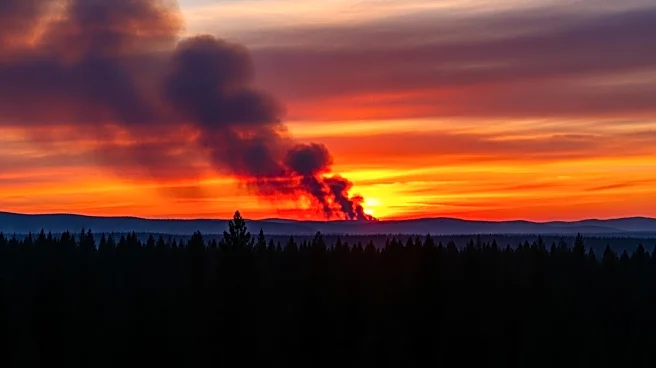What's Happening?
Europe has experienced a record number of wildfires this year, with over 1,900 blazes burning an area larger than Cyprus. The fires have been particularly severe in Spain and Portugal, where prolonged heatwaves and drought conditions have created ideal conditions for wildfires. Local authorities have struggled to manage the fires due to fragmented land ownership and under-resourced fire services. The situation has been exacerbated by political disputes and a lack of coordination between agencies. In response, some countries, like Greece, are investing in firefighting equipment and prevention measures.
Why It's Important?
The wildfires in Europe underscore the growing impact of climate change, as rising temperatures and prolonged droughts increase the frequency and intensity of such events. The fires have significant economic and environmental consequences, destroying vast areas of forest and agricultural land. They also highlight the need for improved coordination and investment in firefighting resources. The situation serves as a warning for other regions, including the U.S., about the potential challenges posed by climate change and the importance of proactive measures to mitigate its effects.
What's Next?
European countries are likely to continue investing in firefighting resources and prevention measures to address the increasing threat of wildfires. The European Union may enhance its Civil Protection Mechanism to facilitate better coordination and resource sharing among member states. The situation may also prompt discussions on land management practices and the role of climate change in exacerbating natural disasters. As the world continues to warm, similar challenges may arise in other regions, necessitating global cooperation and action to address climate change.
Beyond the Headlines
The wildfires highlight the complex interplay between climate change, land management, and political factors in managing natural disasters. They underscore the need for comprehensive strategies that address both the immediate and long-term challenges posed by climate change. The situation also raises ethical questions about the responsibility of governments and individuals in preventing and responding to such disasters.










